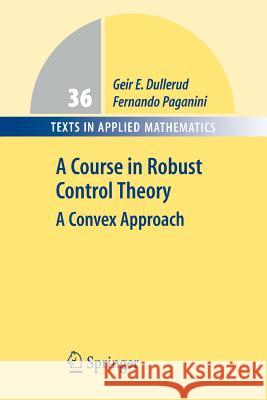A Course in Robust Control Theory: A Convex Approach » książka
A Course in Robust Control Theory: A Convex Approach
ISBN-13: 9781441931894 / Angielski / Miękka / 2010 / 419 str.
Research in robust control theory has been one of the most active areas of mainstream systems theory since the late 70s. This research activity has been at the confluence of dynamical systems theory, functional analysis, matrix analysis, numerical methods, complexity theory, and engineering applications. The discipline has involved interactions between diverse research groups including pure mathematicians, applied mathematicians, computer scientists and engineers. This research effort has produced a rather extensive set of approaches using a wide variety of mathematical techniques, and applications of robust control theory are spreading to areas as diverse as control of fluids, power networks, and the investigation of feddback mechanisms in biology. During the 90's the theory has seen major advances and achieved a new maturity, centered around the notion of convexity. The goal of this book is to give a graduate-level course on robust control theory that emphasizes these new developments, but at the same time conveys the main principles and ubiquitous tools at the heart of the subject. Its pedagogical objectives are to introduce a coherent and unified framework for studying robust control theory, to provide students with the control-theoretic background required to read and contribute to the research literature, and to present the main ideas and demonstrations of the major results of robust control theory. The book will be of value to mathematical researchers and computer scientists wishing to learn about robust control theory, graduate students planning to do research in the area, and engineering practitioners requiring advanced control techniques.











